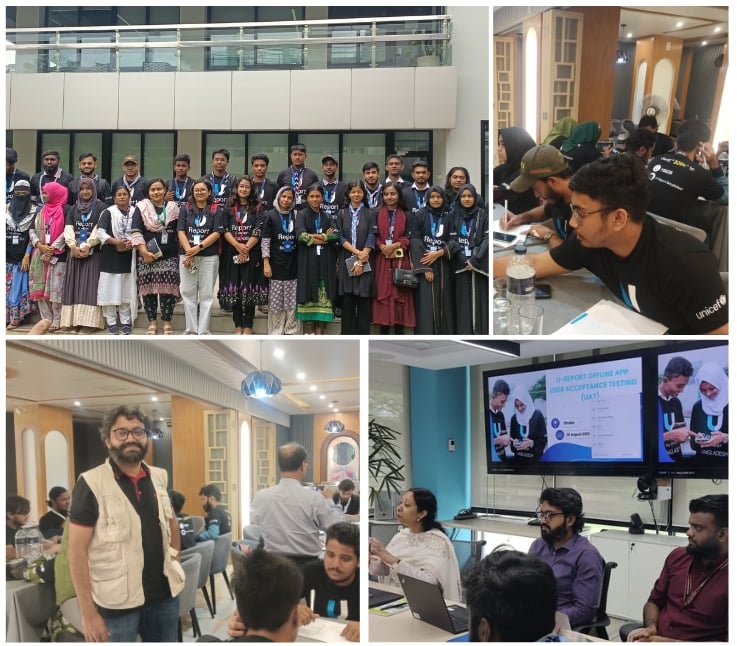Overview
At Riseup Labs, our mission is to bridge the digital divide—especially in places where internet connectivity is not always guaranteed. That’s why the U-Report Bangla Offline App has been tested through multiple rounds of User Acceptance Testing (UAT) across Bangladesh.
These sessions were more than technical checks; they were real-world trials that allowed us to ensure the app reflects the daily lives, cultural contexts, and unique needs of its users.
Why UAT Matters?
UAT sessions are more than checkpoints in development—they are opportunities to listen, learn, and improve. And by engaging directly with the people who will use the app, we gain valuable insights that guide us in creating a tool that is practical, inclusive, and impactful.
- Real-World Feedback: Offline environments, local device limitations, and diverse levels of digital literacy are all factors we must observe firsthand.
- Inclusion: Parents, adolescents, and community members are given a voice in shaping the tool.
- Trust & Ownership: When people see their feedback integrated into the app, they feel a sense of ownership—essential for adoption.
- Quality Assurance Beyond Code: UAT ensures that user experience, language, navigation flow, and offline utility work seamlessly, even without full digital infrastructure.
A Closer Look at the U-Report Bangla Offline App UAT Journey
The U-Report Bangla Offline App is moving closer to launch as seven successful rounds of User Acceptance Testing (UAT) were completed across Bangladesh in August 2025.
Each of these sessions gave community members, parents, adolescents, and partners like UNICEF the chance to directly engage with the app and share valuable feedback, shaping the app into a tool that truly reflects the needs of its users.
Bhola
The journey began in Bhola on 12 August 2025 with the very first UAT. As the pilot session, this was an important milestone to see how the app performed in real hands for the first time.
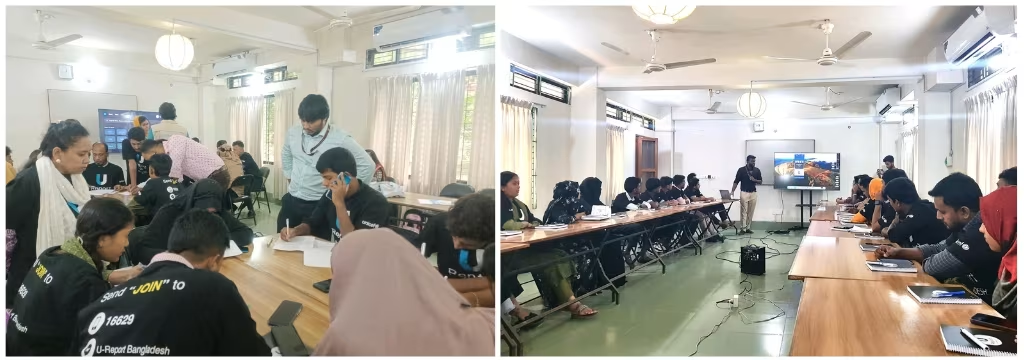
Participants enthusiastically explored its features and shared initial feedback on usability and performance. This session laid the groundwork for refinements and set the stage for the six UATs that followed, proving the importance of testing in real community settings.
Bagerhat
The second UAT was conducted in Bagerhat on 14 August 2025 at Hotel Dhanshiri, Bagerhat Sadar. Community members, parents, and adolescents actively engaged with the app and highlighted the need for stronger offline reliability and smoother navigation.

Their feedback was key in helping the team identify adjustments that would make the app adaptable to varying device capacities and network conditions.
Feni
The journey continued in Feni on 18 August 2025 at Dawat-e-Dastan. Community members tested how the app performed in semi-urban conditions and provided feedback on navigation and accessibility.
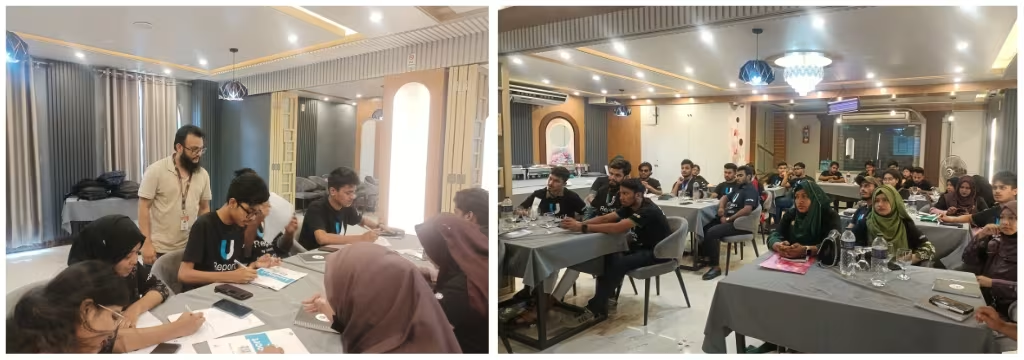
Parents and adolescents pointed out the importance of simple design and clear instructions, helping us refine the interface to be more user-friendly.
Khagrachori
On 19 August 2025, testing continued at the Khagrachori Civil Surgeon’s Office. Participants highlighted practical issues such as battery efficiency and ease of use in low-light conditions.
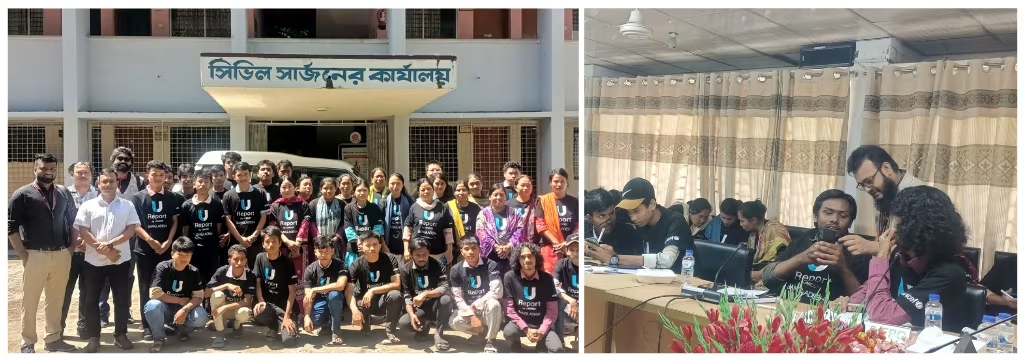
Parents emphasized the need for an intuitive layout, even for first-time users. This led to improvements in both performance and accessibility.
Ukhiya, Cox’s Bazar
The 5th UAT took place on 21 August 2025 at the Global Training Center in Ukhiya. Being a remote area, Ukhiya offered an important opportunity to test the offline functionality of the app.
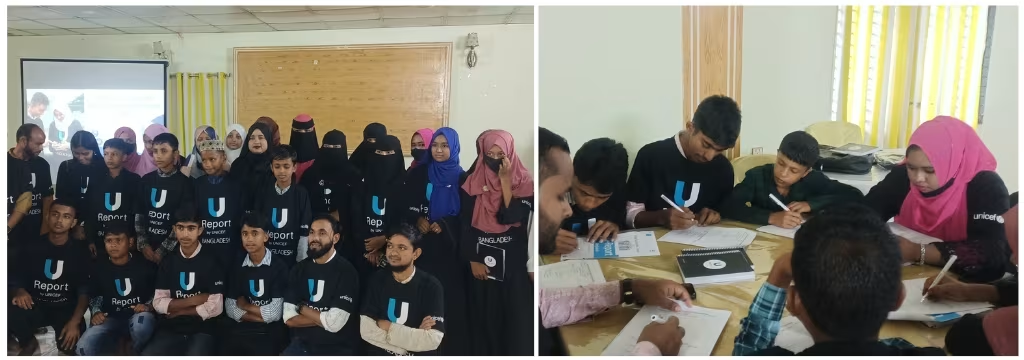
Adolescents provided fresh perspectives, recommending more engaging visuals and interactive elements to make the experience appealing for younger users.
Chapainawabgonj, Rajshahi
On 24 August 2025, the team visited Chapainawabgonj for the 6th UAT at Upazila Model Masjid.
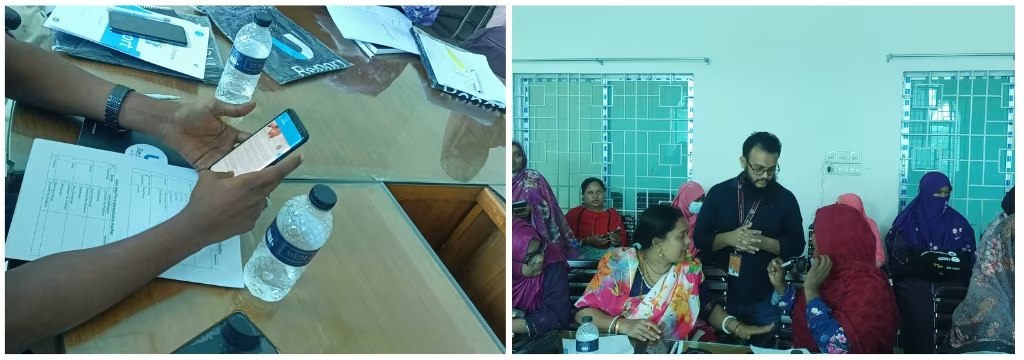
Conducted in a community-centered environment, this session highlighted the importance of offline data storage and cultural adaptability. Community leaders stressed that the app must work seamlessly in group settings, ensuring inclusivity for all participants.
Dhaka
The final round was held on 28 August 2025 at Agargaon, Dhaka. In this busy urban environment, the app was tested across a wide variety of devices.
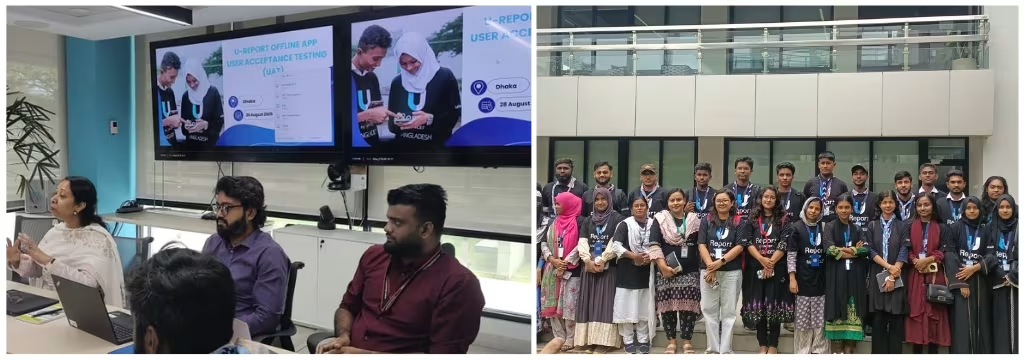
Participants placed strong emphasis on speed, smooth performance, and user experience. Their feedback guided refinements to optimize the app for large-scale, diverse user bases.
Voices that Shaped the App
The most valuable insights came from the people themselves.
- Parents wanted a simple, intuitive experience that doesn’t overwhelm them.
- Adolescents pushed for interactivity and visuals that capture their attention.
- Community leaders highlighted inclusivity and accessibility, stressing that the app must work even in challenging conditions.
These voices ensured that every improvement was driven by real user needs, making the app not just user-tested but community-built.
Key Improvements
Each UAT inspired significant changes that made the app stronger:
- A simplified onboarding process with fewer steps and clearer visuals.
- Offline data queuing so that no input is lost when the network drops.
- Localized language improvements to align with community dialects.
- Battery and performance optimization for longer and smoother use.
- Thorough low-end device testing to ensure accessibility for everyone.
These refinements transformed the U-Report Bangla Offline App into a tool ready to adapt to diverse real-life conditions across Bangladesh.
Looking Ahead
With these UATs successfully completed, Riseup Labs is preparing to roll out the final version of the U-Report Bangla Offline App. The next steps include:
- Expanding access to more districts, including marginalized communities.
- Training local ambassadors to support adoption.
- Developing resources like video guides and voice prompts for broader accessibility.
- Establishing ongoing feedback loops to keep improving post-launch.
Riseup Labs: Innovating with Purpose
At Riseup Labs, we believe technology should do more than solve problems—it should ignite change. With the U-Report Bangla Offline App, we are ensuring that every voice can be heard, no matter the connectivity challenges. Together with UNICEF and our community partners, we are proud to create a tool that is inclusive, resilient, and built for the future.
This page was last edited on 18 September 2025, at 6:55 pm
Contact Us Now

Contact Us Now
Start a conversation with our team to solve complex challenges and move forward with confidence.










